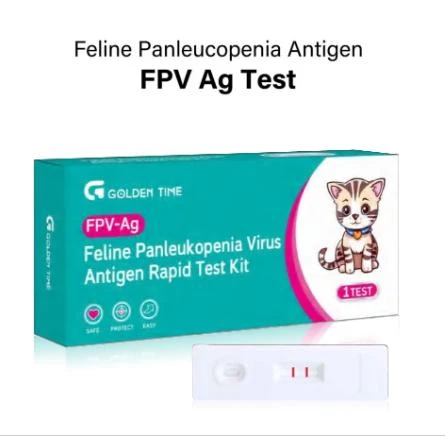Фев . 10, 2025 11:35 Back to list
influenza a/b antigen test
Rapid antigen tests have revolutionized the landscape of infectious disease diagnostics, particularly in the detection of influenza. A game-changer due to their speed and convenience, these tests offer a suite of benefits that can't be overstated, especially in times of flu outbreaks that demand quick responses.
The credibility or trustworthiness aspect of rapid antigen tests cannot be overlooked. While they offer speed, it's important to acknowledge their limitations. Sensitivity levels may be lower than those of molecular tests, which means they are more reliable when an individual is showing symptoms or within a specific timeframe from symptom onset. This limitation requires healthcare practitioners to potentially follow up with confirmatory testing for negative results in the presence of high clinical suspicion. From a product perspective, manufacturers of these tests continually enhance their offerings, focusing on aspects such as improved accuracy, ease of use, and expanded shelf life to ensure reliability. Regular updates in test kits adapting to viral mutations also play a significant role in maintaining their relevance and trust among users. The demand for rapid antigen tests for influenza is also driven by the growing trend of telemedicine. Patients now have the convenience of assessing flu risks quickly and efficiently at home, which, coupled with virtual consultations, revolutionizes the way healthcare is delivered. For companies developing these products, there's an increasing opportunity to innovate further, providing consumers with even more integrated health monitoring solutions. In conclusion, rapid antigen tests for influenza exemplify significant steps forward in managing infectious diseases. Their uniqueness lies in embodying speed, accessibility, and versatility, making them indispensable in various settings. By continuously improving their efficacy and accuracy, and understanding their contextual applications, these tests will remain pivotal in public health strategies against influenza outbreaks. As the landscape of diagnostics evolves, so too does the importance of staying informed about the capabilities and limitations of such diagnostic tools.


The credibility or trustworthiness aspect of rapid antigen tests cannot be overlooked. While they offer speed, it's important to acknowledge their limitations. Sensitivity levels may be lower than those of molecular tests, which means they are more reliable when an individual is showing symptoms or within a specific timeframe from symptom onset. This limitation requires healthcare practitioners to potentially follow up with confirmatory testing for negative results in the presence of high clinical suspicion. From a product perspective, manufacturers of these tests continually enhance their offerings, focusing on aspects such as improved accuracy, ease of use, and expanded shelf life to ensure reliability. Regular updates in test kits adapting to viral mutations also play a significant role in maintaining their relevance and trust among users. The demand for rapid antigen tests for influenza is also driven by the growing trend of telemedicine. Patients now have the convenience of assessing flu risks quickly and efficiently at home, which, coupled with virtual consultations, revolutionizes the way healthcare is delivered. For companies developing these products, there's an increasing opportunity to innovate further, providing consumers with even more integrated health monitoring solutions. In conclusion, rapid antigen tests for influenza exemplify significant steps forward in managing infectious diseases. Their uniqueness lies in embodying speed, accessibility, and versatility, making them indispensable in various settings. By continuously improving their efficacy and accuracy, and understanding their contextual applications, these tests will remain pivotal in public health strategies against influenza outbreaks. As the landscape of diagnostics evolves, so too does the importance of staying informed about the capabilities and limitations of such diagnostic tools.
Latest news
-
Dengue NS1 Rapid Diagnostic Test Kit
NewsMar.07,2025
-
Dengue NS1 Rapid Diagnostic Test Kit
NewsMar.07,2025
-
Dengue NS1 Rapid Diagnostic Test Kit
NewsMar.07,2025
-
Transferrin Rapid Test Cassette Tumor Marker TF Card
NewsMar.07,2025
-
Malaria Pf Pan Rapid Diagnostic Test Kit
NewsMar.07,2025
-
malaria pf / pan ag rapid test
NewsMar.07,2025

